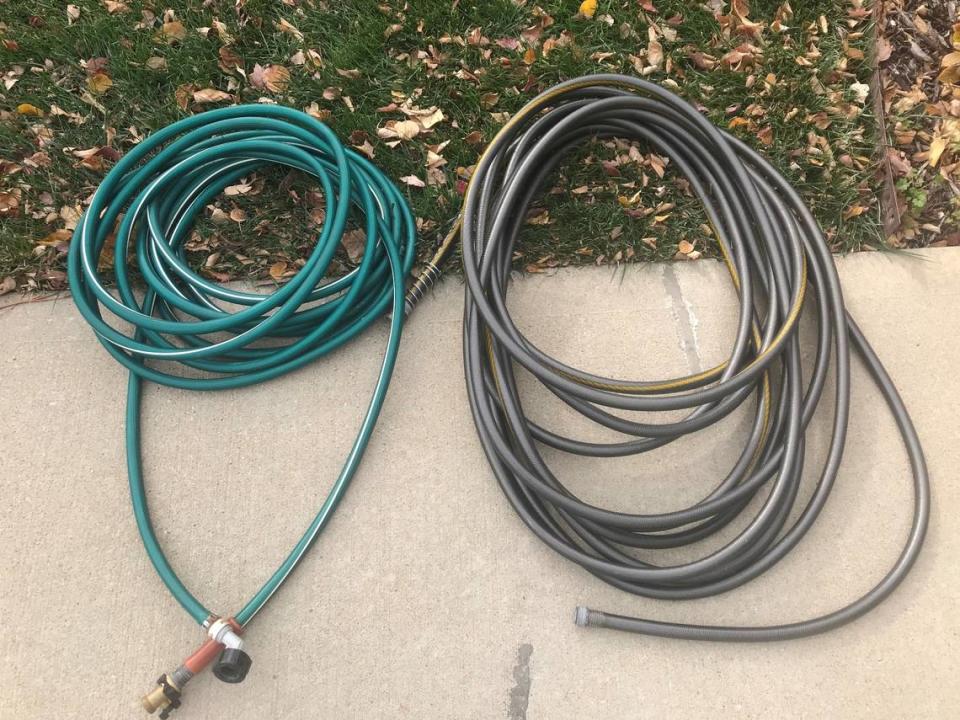Did you prep the mower and tools? Drain the garden hose? Checklist for what to do now
We invest in our garden tools and equipment, and care should be taken to ensure they are in proper working order when we need them. Here are a few chores to help you prepare now for spring.
Power equipment
Now is a good time to service power equipment such as mowers, tillers and garden tractors. Run the equipment out of gas before storing it for the winter or treat the existing gas with a stabilizer. Untreated gas can deteriorate and clog the equipment. If using a stabilizer, run the engine long enough for untreated gas in the carburetor bowl to burn off. This helps keep fuel lines fresh and free of particles.
Change the oil while the engine is warm. Check and clean air filters and replace them if necessary. Many mowers and tillers will have a foam filter that can become filthy and clogged with dust. If allowed to become dirty, engines will run poorly or not run at all. Check and replace the spark plug if needed.
Sharpen blades, clean tines, tighten screws, replace broken parts, and do all the other things needed to keep equipment in good shape. Maintenance does take some time and effort, but during a hectic spring it pays for itself by reducing frustration and lost time due to poorly performing equipment.
For those who do not consider themselves handy, take your power equipment into your local small engine shop for a tune-up and authorize any recommended repairs. This is a slow time for them and helps you avoid the spring rush and delays during peak.
Hand-tool care
The end of the season is an excellent time to clean up and protect your tools so they will last. Hoes, shovels, and other garden tools often have wooden handles. These handles can deteriorate if left in an unprotected location. Weathering can raise the grain on wooden handles, resulting in splinters. Sand smooth any raised areas. Apply a wood preservative, such as linseed oil or polyurethane, to protect the wood. Wipe off any excess after a few minutes, as oil-based products can attract dirt.
Remove soil from metal surfaces. Use sandpaper or steel wool to remove any rust that may have formed. Now would also be an excellent time to sharpen dull edges. A light oil coating will help protect metal through the winter and prevent rusting.

Hoses and irrigation lines
Hoses and shallow irrigation lines may be damaged over the winter if not drained. Lawn irrigation systems have shallow lines. If there is a main shutoff valve for the system, close it and then run through the zones to make sure any pressure has a chance to run off. Some systems require a professional to blow the excess water from the underground lines. Contact your irrigation service provider.
Drain garden hoses and disconnect them from the water outlets. Drain hoses by stretching them out and coiling them for storage. Hoses are best stored in a protected place for winter, as UV light can make hoses brittle over time, and squirrels like to gnaw on them.
Investing time and effort in your equipment before you put them away for winter helps you avoid delays when the warmer weather arrives, and you need to use your tools again.
Dennis Patton is a horticulture agent with Kansas State University Research and Extension. Need help? Contact the Johnson County Extension gardening hotline at 913-715-7050 or email garden.help@jocogov.org.

